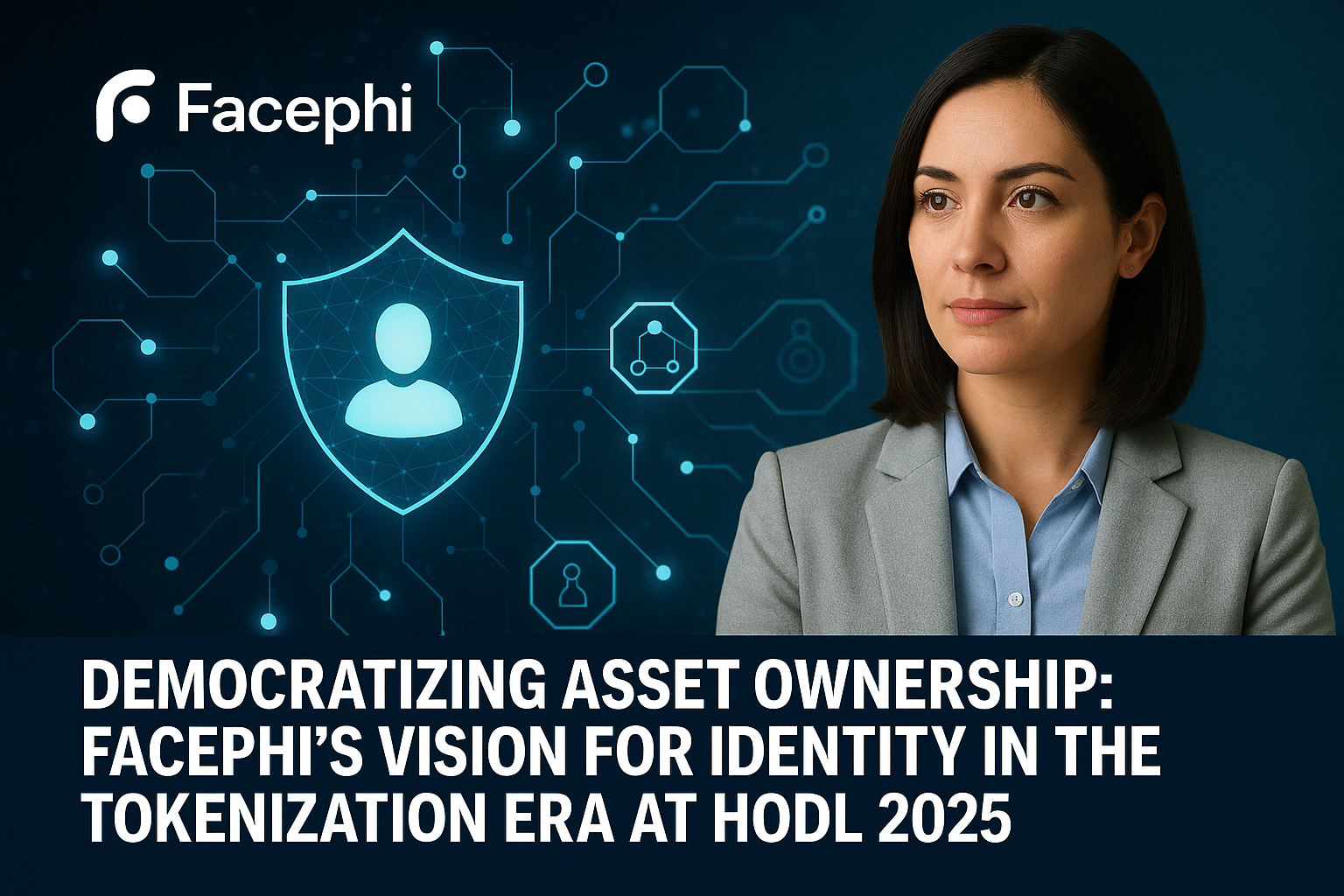At HODL 2025, held in the innovation capital of Dubai, Sabrina Gross, Global Account Director at Facephi, delivered a compelling presentation on the critical role identity verification plays in the emerging world of tokenized assets. Her talk underscored a future where biometrics and blockchain converge to unlock unprecedented access to asset ownership for people across the globe.
Facephi: Powering Trust in Digital Finance
Facephi has positioned itself as a leading identity platform, enabling end-to-end solutions that include facial recognition, fingerprint and voice biometrics, onboarding, and continuous authentication. This technology ensures that individuals accessing financial platforms are not only legitimate but protected through highly secure, automated systems.
“Essentially, you can do everything identity-related with us,” Gross explained, emphasizing Facephi’s role as a digital gatekeeper in increasingly decentralized systems.
Tokenization: Revolutionizing Investment Accessibility
Gross’s keynote addressed tokenization, a transformative concept where high-value assets—such as real estate, fine art, gold, and equities—are broken down into fractional digital tokens. This allows individuals to invest with as little as $1,000, removing traditional capital barriers and encouraging wider financial participation.
“Tokenization is democratizing asset ownership,” said Gross. “It gives people a chance to invest in what was previously inaccessible—whether that’s a luxury property or a rare painting.”
This approach is gaining traction among traditional banks and fintech innovators alike, enabling new forms of ownership and portfolio diversification.
Identity: The Backbone of Secure Token Transactions
As the token economy grows, the need to ensure trusted identity verification becomes paramount. This is where Facephi’s technology enters the picture. By linking biometric authentication to each transaction, Facephi provides a seamless, secure way for individuals to prove ownership, initiate sales, or acquire additional tokens—all without human intervention.
Gross explained: “We ensure that the person buying or selling a token is who they say they are. This is crucial for platforms and financial institutions managing these assets.”
Transparency Through Blockchain
An additional strength of tokenization is its integration with blockchain technology. All transactions are permanently recorded, immutable, and transparent, ensuring accountability and reducing the likelihood of fraud.
Gross highlighted how automation, combined with Facephi’s identity layer, makes the entire process efficient, secure, and transparent, enabling real-time verification without compromising privacy or ownership rights.
Dubai: A Strategic Fintech Ecosystem
Concluding her appearance, Gross praised Dubai’s leadership in embracing emerging technologies and fostering an environment conducive to fintech innovation.
“Dubai is at the center of so many technological shifts,” she said. “The openness to new ideas and the financial advantages here make it the perfect place to connect with innovators and investors alike.”
As tokenization continues to reshape the investment landscape, Facephi stands out as a pivotal enabler, ensuring that every digital asset interaction is backed by trust, identity, and transparency. HODL 2025 affirmed that the future of asset ownership is not only more inclusive but also more secure—thanks to companies like Facephi leading the way.


